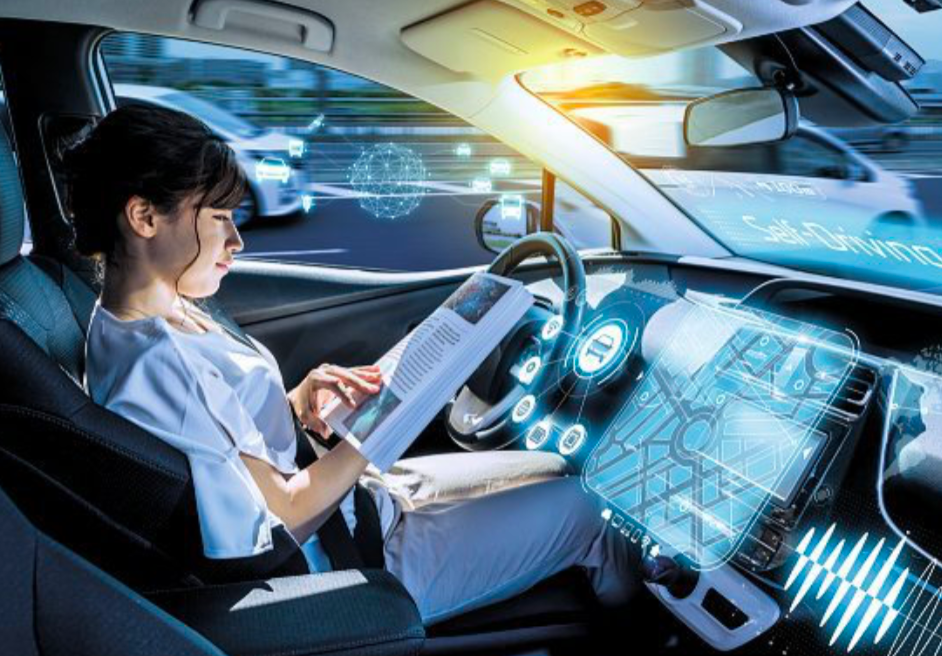A group of companies that develop technology that drives self-driving cars is concerned about their Chinese counterparts.
Members of the association, known as the Lidar Coalition, create Light Detection and Ranging devices. These systems, when combined with radar, enable autonomous vehicles to recognize automobiles or people and produce highly detailed maps of everything they encounter.
According to the corporations, the technology can capture vast amounts of sensitive data about US infrastructure and may be utilized by Chinese firms on military vehicles to make them self-driving.
RELATED: Self-Driving Car Stopped By San Francisco Police
The industry of self-driving cars is at a crossroads. It has garnered hundreds of millions of dollars in investment in recent years, sparking speculation that their cars may soon become popular. However, this has not occurred, and other Lidar enterprises have either consolidated or gone bankrupt.

And, with the Lidar business faltering, it’s unclear whether China poses a true national security danger in self-driving cars or if this is a self-serving move to disadvantage global competitors.
Meanwhile, Chinese competitors such as Hesai Group can provide competing items at a significant cost, according to Brunno Moretti, product vice president at San Jose, California-based Cepton Inc. According to Yole Intelligence, Hesai controls 47% of the automotive Lidar market.
Hesai Lidar is used by Kodiak Robotics, Inc., a self-driving trucking company in the United States. Inertial Labs Inc., a US government contractor, announced in May that it had chosen the company “to provide perception and navigation capabilities” for its “autonomous marine, land, and aerial based systems.”
RELATED: Tesla’s “Full Self-Driving” Technology Is Criticized In A Super Bowl Commercial

“From a technical standpoint, Hesai’s side- and rear-facing Lidar is among the best on the market, which is why they are among the most widely-used Lidar sensors in the industry,” stated Don Burnette, founder and CEO of Kodiak. Hesai did not react to a comment request.
Kodiak, on the other hand, has stated that it would like Congress to create a new federal regulatory structure for autonomous vehicles to replace the current patchwork approach.
Meanwhile, the group seeks to discourage Detroit from doing business with Chinese firms. Its lobbying tactic includes sending a 20-page white paper to policymakers and automakers that outlines the “financial, reputational, and legal risks” presented by Chinese Lidar.
RELATED: Engineer Testifies That Tesla’s Self-Driving Video Was Staged
A request for comment was not returned by the Alliance For Automotive Innovation, a trade body that represents US automakers.

When asked to comment on the claims made by US manufacturers and legislators, a spokesperson for the Chinese Embassy replied, “We hope that the United States will abide by international economic and trade rules, respecting the rights of enterprises to carry out normal investment and trade activities.”
Some members of Congress are also concerned about losing ground to China in the field of Lidar technology. Their concerns stem not only from competitiveness, but also from what they perceive to be a threat to national security presented by technology.
RELATED: Self-Driving Tech Company Floats Possible Sale To Apple Or Microsoft
Four US legislators, including Rep. Debbie Dingell and Rep. Tim Walberg, signed a letter to Transportation Secretary Pete Buttigieg and Commerce Secretary Gina Raimondo earlier this month, reiterating the coalition’s concerns. They stated in the letter that China prohibits US autonomous car businesses from operating or testing in China. “By not prohibiting Chinese companies from operating in the United States in exchange,” they concluded, “we are ceding a significant strategic advantage.”

The government of Joe Biden looks to be paying attention. Buttigieg warned in a recent interview with Reuters that autonomous vehicle technology may become the latest battlefield in the current technological cold war between the United States and China.
“Whether we’re talking about hardware or software, there are concerns about transportation technologies in the same way that there are concerns about telecom or TikTok,” he said.
Download The Radiant App To Start Watching!
Web: Watch Now
LGTV™: Download
ROKU™: Download
XBox™: Download
Samsung TV™: Download
Amazon Fire TV™: Download
Android TV™: Download

